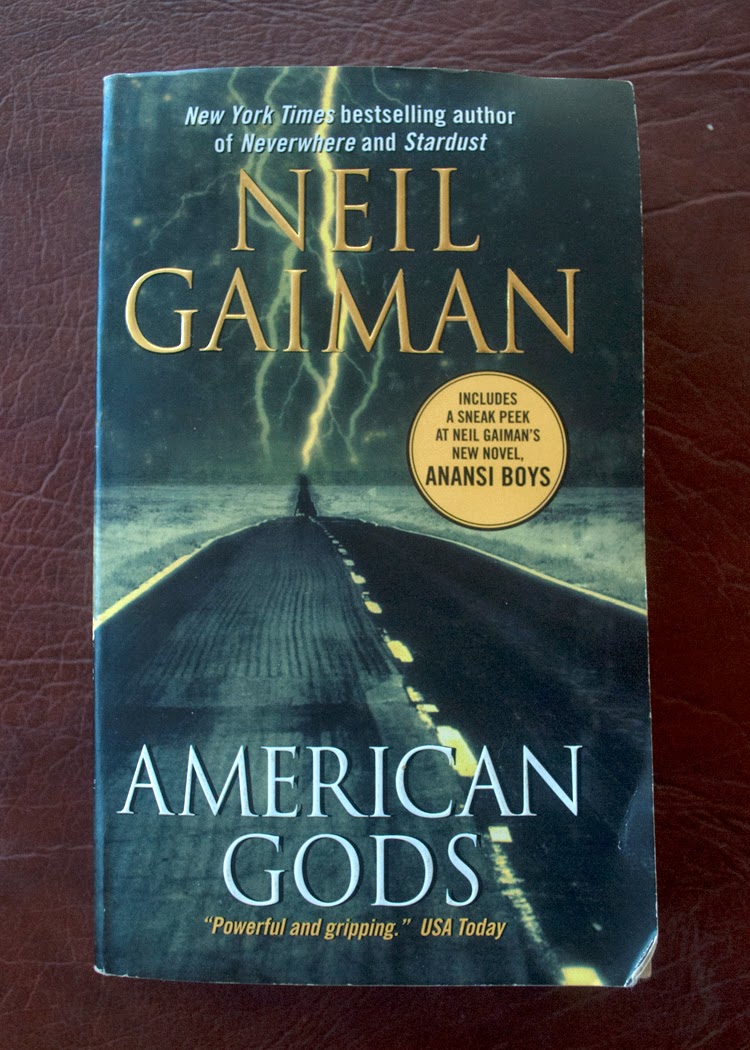Saturday, June 14, 2014
The gods are clearly crazy
Spooky is difficult to define. Things can feel spooky, but spookiness isn't a feeling; it's a state. A dusty old house at twilight is spooky but the same house at noon might be seem nostalgic or even cheery. The house's spookiness is situational, not a permanent quality.
I bring this up because a lot of what goes on in American Gods is spooky but the book itself isn't. The book is fun and silly and full of mystery and delight but it isn't, in and of itself, spooky.
A huge part of what I like about this novel is the characterization of gods - how they come to occupy a space and what keeps them there. It's a compelling inspection of the way that myths are created and thrive and it honestly feels like Gaiman is trying to bring the myths he discusses to life for a new group of readers. I may not have been interested in Kali or Horus before reading American Gods, but I sure as hell am after.
The first time I read this book I didn't have a very good background in mythology; I was a 20-year-old journalism major who liked to read but hadn't really read formally. This time around I had a pretty solid background in Norse mythology and knew a fair amount about Celtic and early English myths - that helped A LOT when I was trying to understand what was going on and why the major players were doing what they did. I don't think it's mandatory to have a strong myth background when reading American Gods, but it did make the book a little more fun for me.
But the book is fun whether or not you know everything that's going on; it's well paced and intricate at the same time, there are brilliantly crafted characters and stunning settings, and oddly enough there's a sense of timelessness that pervades the whole novel - it feels dusty and modern at the same time, like this is a myth that's been weathered by the ages AND was just written.
Cheers,
- Alli
Gaiman, Niel. American Gods. Harper Collins. New York: New York. 2002. (2001).
Subscribe to:
Post Comments (Atom)


No comments:
Post a Comment